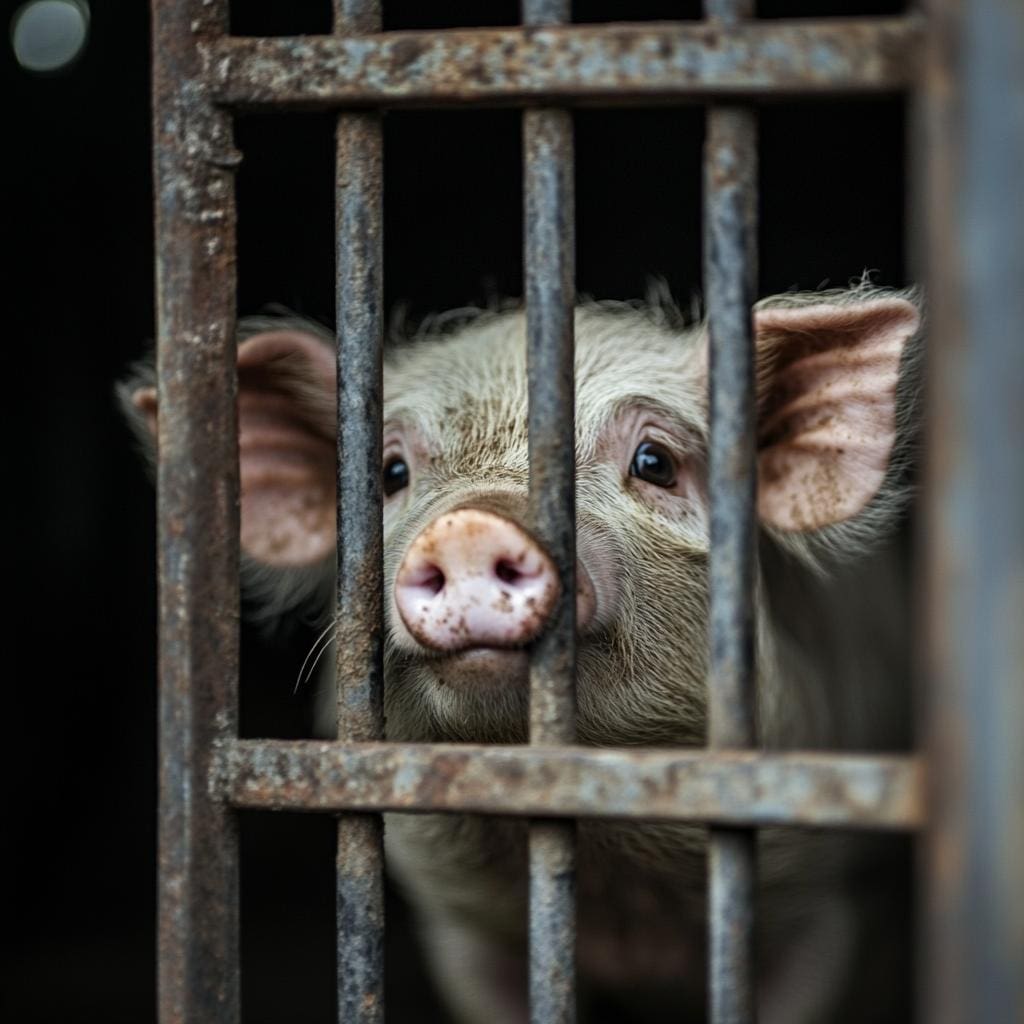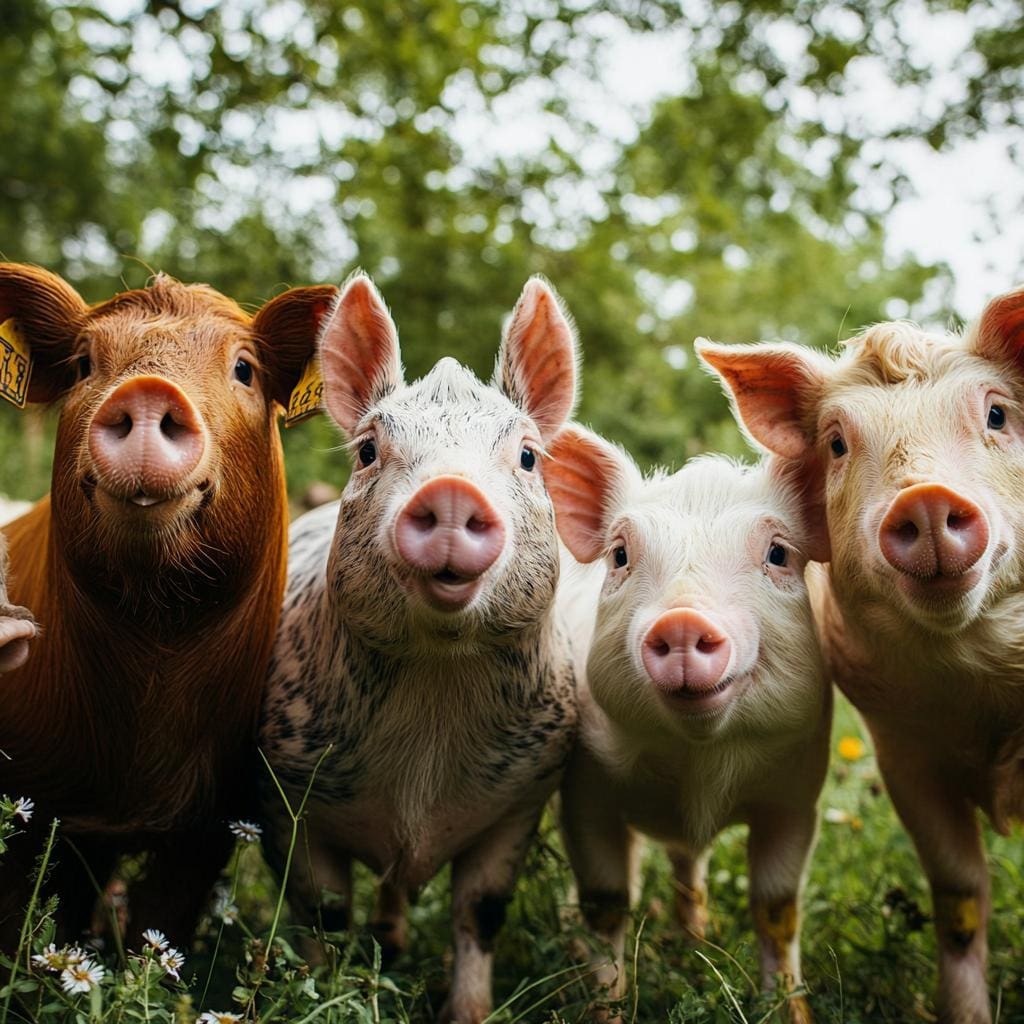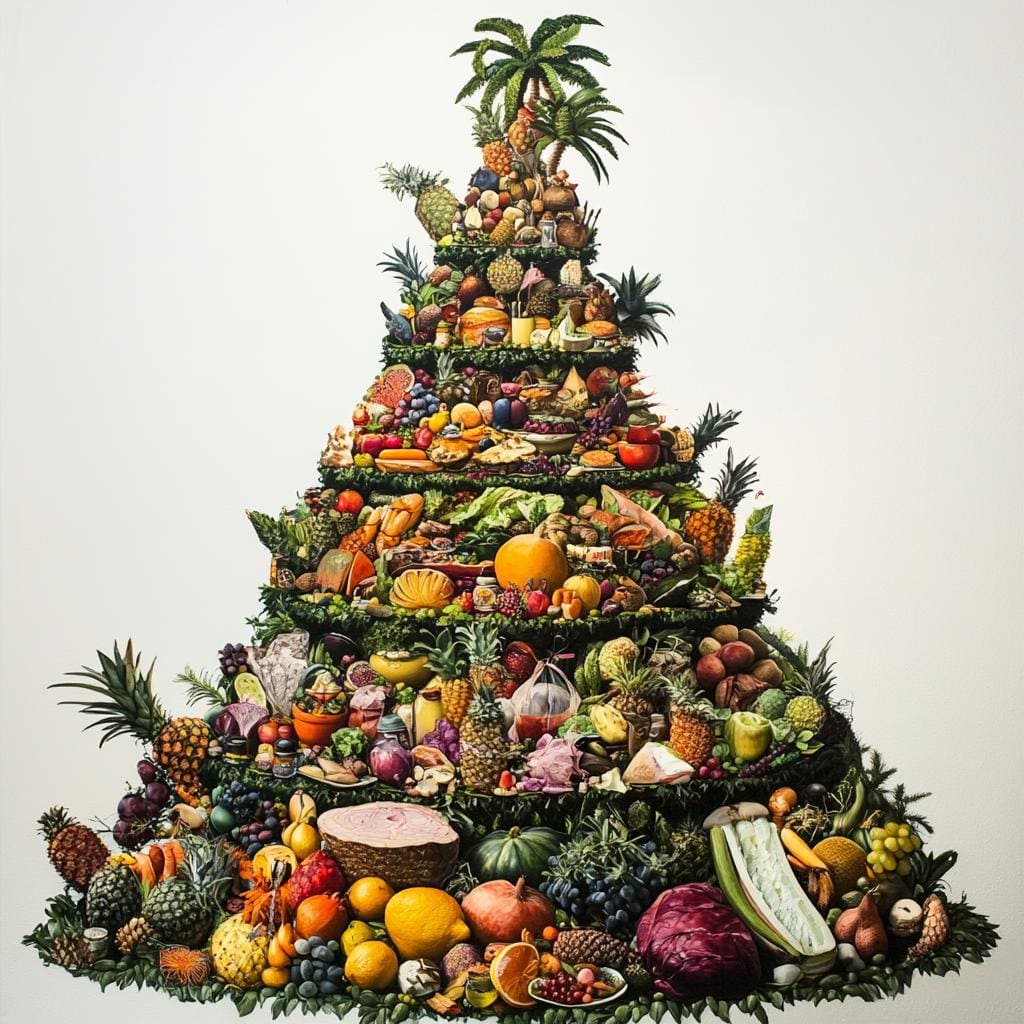In a surprising social experiment on the bustling streets of London, a man disguised as a dog meat eater sparked intense reactions. Positioned outside Burger King, he engaged passersby in thought-provoking dialogue about societal norms on meat consumption. Holding a controversial sign, he argued for the equivalency between eating dogs and other animals, citing cultural conditioning and intelligence comparisons. The reactions varied from intrigued discussions to a dramatic moment when an outraged woman hurled a drink at him, showcasing the deep emotional ties people have to this divisive topic. The video explores the complex intersection of ethics, culture, and dietary choices.
**Introduction:**
In an era of viral moments and unconventional activism, discussions around dietary choices and animal rights often spark intense debates and passionate reactions. One such fervent exchange was captured in the YouTube video titled “Angry Woman THROWS drink at Vegan disguised as DOG eater…”. Set against the bustling backdrop of London’s Leicester Square, the video takes us on a provocative journey orchestrated by an undercover activist who daringly critiques societal norms around meat consumption.
In this blog post, we’ll delve into the key themes explored in this intriguing social experiment. From the contentious attitudes towards eating dogs versus other animals, to the societal conditioning that dictates our dietary habits, this video provides a thought-provoking lens through which we can examine our relationships with the food on our plates. Join us as we unpack the reactions, the arguments, and the underlying questions that challenge common perceptions about meat consumption.
Understanding Cultural Conditioning Behind Animal Consumption

In examining the intricate web of cultural conditioning behind animal consumption, it’s evident that societal norms play a profound role in shaping our dietary preferences and ethical considerations. A casual observer might never question why the idea of eating dogs invokes repulsion while consuming chicken or pork is routine. This distinct disparity underscores the influence of **cultural conditioning** — a deep-seated societal pattern that designates certain animals as food and others as companions.
- Historical and Cultural Contexts: Societies develop unique relationships with animals based on historical, cultural, and environmental factors. For instance, while cows are sacred in India, they’re a common dietary staple in Western countries.
- Social Acceptability: The availability and commercial emphasis on certain meats in supermarkets reflect an ingrained societal conditioning, making it convenient and culturally acceptable to consume animals like chicken or lamb.
- Sentient Beings: The ethical argument posits that all animals, being sentient, should be treated with equal respect, challenging the conventional hierarchy of ‘edible’ and ‘non-edible’ animals.
| Animal | Perception | Common Use |
|---|---|---|
| Cow | Food (in some cultures), Sacred (in others) | Beef, Dairy |
| Dog | Companion | Pets |
| Chicken | Food | Poultry |
The overarching theme here is that our choices, influenced by **societal norms**, can often overshadow our individual ethical standpoints, making it crucial to question and redefine these deeply rooted perceptions.
Exploring the Ethics of Eating Different Animals

In the bustling heart of London at Leicester Square, an undercover vegan disguised as a supposed dog eater sparked a confrontation outside Burger King. Brandishing a sign that touted the controversial message, he engaged passersby in a heated debate over the ethics of eating different animals. One of the core arguments presented was stark and baffling to many: if animals are not meant to be eaten, why are they made of meat? To underscore his point, he quipped about the intellectual disparity between humans and dogs, pointing out that dogs can’t use or create iPhones.
- Not human: Animals like dogs are not part of the human species.
- High in protein: Meat, including that of dogs, is rich in protein.
- Intellectual differences: Dogs can’t use technology or speak human languages.
Even more compelling was his broader stance that the societal norms which dictate acceptable animals for consumption are inconsistent. If we abhor the idea of eating dogs due to their sentience, why do we not apply the same reasoning to other animals like cows, pigs, or chickens?
| Animal | Common Usage |
|---|---|
| Dog | Pet |
| Cow | Food (Beef) |
| Pig | Food (Pork) |
| Chicken | Food (Poultry) |
Highlighting the conditioned and cultural biases, he drove his point home with a provocative example: If one had to choose which animal to kill with a hammer—a cow, a pig, or a dog—there would be no logical difference from an ethical standpoint. Society’s deeper bond with dogs merely makes such actions seem more morally reprehensible, revealing the inconsistencies in our consumption norms.
Challenging the Hierarchy of Edibility in Society

The concept of **edibility hierarchy** got dramatically challenged when a vegan activist, posing as a dog meat eater, sparked an intense reaction from the public. One woman’s anger can’t be understated; from shouts to ultimately throwing a drink, her actions epitomized society’s deep-set biases about which animals are considered acceptable to eat and which are not.
This provocative scenario lays bare our conditioned beliefs. If society has deemed cows and pigs consumable, why are dogs off the menu? The debate touches on deep cultural conditioning and personal relationships with certain animals, throwing a wrench into the idea of any **logical differentiation**.
- Society’s role in defining “edible” animals
- Cultural vs. emotional attachments
- Vegetarian and vegan ethical standpoints
| Animal | Reason for Edibility |
|---|---|
| Cow | Socially acceptable |
| Pig | Commercial availability |
| Dog | Personal relationship |
The Psychological Impact of Personal Relationships with Animals

The relationships we form with our pets, like dogs, often result in profound psychological impacts on our lives and perspectives. While engaging in deep undercover conversations, some common justifications for consuming meat, including dogs, were discussed such as:
- **Nutritional content** – they provide protein.
- **Species hierarchy** – they’re not human and perceived as less intelligent.
- **Cultural conditioning** – societal norms dictate which animals are consumable.
However, the conversation took a turn when the psychological bond people share with their pets was highlighted. This personal relationship can redefine ethical boundaries and shape our dietary choices. This was illustrated through a comparative scenario using a cow, pig, and dog:
| Animal | Societal Perception | Psychological Impact |
|---|---|---|
| Cow | Food source | Minimal |
| Pig | Food source | Minimal |
| Dog | Companion | Significant |
It’s evident that the emotional ties and personal connections formed with pets can heavily influence our moral decisions and societal views regarding animal consumption.
Practical Steps Towards More Ethical Eating Habits

Developing more **ethical eating habits** may seem daunting, but it can be achieved through practical, thoughtful steps. Here’s how you can start:
- **Educate Yourself**: Learn about the impacts of your dietary choices on animals, the environment, and your health. Knowledge is a powerful motivator for change.
- **Plan Your Meals**: Plan meals around plant-based options that provide necessary nutrients. Incorporate a variety of vegetables, legumes, grains, and fruits to avoid monotony.
- **Start Small**: Introduce one or two plant-based meals into your weekly routine. Gradually increase this number as you become more comfortable with new recipes and ingredients.
- **Support Ethical Sources**: When you do choose to eat meat, seek out locally-sourced, ethically-raised options. This not only supports local farmers but also ensures you are consuming higher quality products.
| Action | Impact |
|---|---|
| Reduce Meat Consumption | Less environmental impact |
| Choose Plant-Based Alternatives | Improved health and animal welfare |
| Buy Local | Supports local economy |
Insights and Conclusions
As we peel back the layers of our societal norms and challenge the established views on meat consumption, one can’t help but ponder the complex tapestry of ethics that fuel our dietary choices. The YouTube video featuring a provocative experiment in London’s Leicester Square has sparked a conversation that goes beyond mere shock value. It delves into the deeper questions of why we deem certain animals worthy of protection while casually consuming others.
From masked confrontations to the unwavering stance of the disguised vegan, this social experiment brought forward compelling arguments about the arbitrary lines we draw between what is socially acceptable and what is not. It serves as a provocative reminder that cultural conditioning heavily influences our food choices, often without us realizing the extent of its power.
As we conclude this exploration, it’s crucial to remember that the aim isn’t to incite guilt or confrontational debates but to provoke thoughtful reflection. How often do we question the ethical foundations of our daily habits? Whether you’re a staunch vegan, a conscious omnivore, or simply someone questioning the status quo, it’s conversations like these that pave the way for a more informed and empathetic society.
So, next time you sit down to a meal, perhaps take a moment to reflect on the journey of your food and the silent narratives of the beings involved. Change begins with awareness, and awareness starts with the willingness to see beyond the surface.



